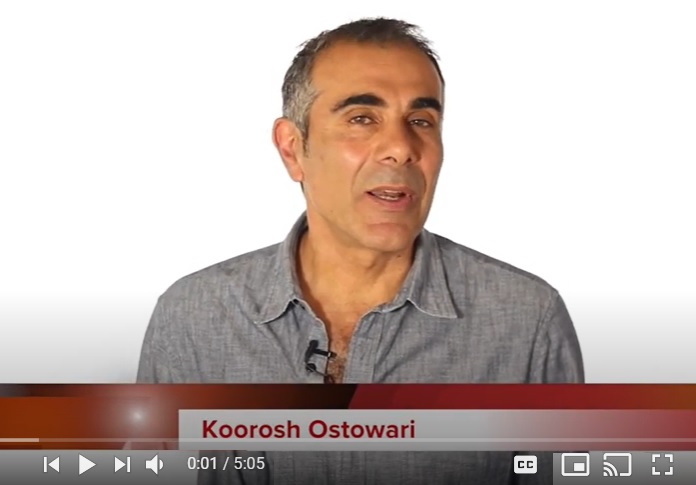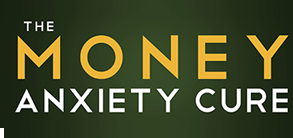 If you’ve lost your job — or are worried about it — therapists say there are a few things you can do to ease financial anxiety. I also invite you to watch a series of videos I created to help alleviate Money Anxiety HERE.
If you’ve lost your job — or are worried about it — therapists say there are a few things you can do to ease financial anxiety. I also invite you to watch a series of videos I created to help alleviate Money Anxiety HERE.
Original article from TODAY, Mind & Body
Over 22 million people have filed for unemployment, thrusting the United States into the worst crisis since the Great Depression, while other Americans worry that pay cuts and layoffs are on the horizon.
“Job loss can feel like a threat to our stability and survival,” Amanda Clayman, a psychotherapist and financial wellness advocate at Prudential tells TODAY. “For some of us, this threat is critical and immediate. Any time we’re dealing with multiple stressors, what we have available in terms of time, energy, focus and emotional capacity is going to be spread between them,” she explains. But when it comes to job loss, Clayman says our coping capacity is overwhelmed.
“There’s this palpable fear of actual death that coincides with this economic crisis, and that amplifies the stress,” says financial psychologist Brad Klontz, associate professor of practice in financial psychology and behavioral finance at Creighton University Heider College of Business. “What happens in the midst of a panic like this is we have catastrophic thinking. People think: ‘What if I lose all my money? Is this the end of the world — at least as I know it?,’”Klontz explains.
If you’re in shock and feel helpless, these financial therapists say are a few things you can do to mitigate financial anxiety.
If you’ve been laid off…
Getting laid off is traumatic under any circumstance but we’re especially vulnerable now because our familiar coping strategies — like networking in person — aren’t available to us anymore. “It’s hard to overstate how deeply we experience loss and vulnerability when our sense of identity and security are disrupted by job loss,” says Clayman.
Know you’re not alone
As millions of Americans are jobless, Clayman says any sort of stigma associated with it has essentially been eradicated. “There are many hard things right now about being out of the job, but one thing that is hopefully lessened is the sense that this is personally anyone’s fault,” she says.
Stay in the present
Clayman says the best thing you can do to protect your mental health is to stay focused on the here and now — and to avoid thinking beyond six months from now. “Solve the problems directly in front of you, and identify strategies to keep yourself safe for the next three to six months. I don’t recommend thinking more in the future. So much is changing so quickly, and there’s so much we don’t know.”
Walk through your worst-case scenario
If you’ve lost your job without much savings, hearing ‘you should’ve had an emergency fund’ isn’t helpful, says Klontz. “Your brain has basically an on-off switch on survival. It’s the same urge to run away from a saber-toothed tiger. In financial stress, your brain says, ‘Oh no, I’m going to die.’ That’s a very stressful place to live.”
To alleviate stress and figure out a short-term plan, Klontz recommends walking through your worst-case scenario, step-by-step, to realize you will make it through — even though it might feel like walking through fire. “It’s a matter of figuring out what you need to do to survive for the next three months, six months, without killing yourself from stress,” he says.
It’s a matter of figuring out what you need to do to survive for the next three months, six months, without killing yourself from stress.
Build upon your skill set
Moira Somers, a psychologist with financial expertise based in Winnipeg, recommends taking online courses to boost your marketable skills. She recommends Coursera.org, which currently offers courses for free.
Create online networking opportunities
“This is the time to let people far and wide know that you’ve been laid off and that you’re looking for opportunities,” Somers says. “If anybody knows of somebody with expertise in a particular line of work that you’re interested in, ask if they could make some virtual introductions.”
If you’re dealing with a pay cut…
Clayman says the best way to deal with a pay cut is to forge a full-on financial recon. “The idea is not just to think creatively in terms of plans, but to really expand your sense of agency and control,” she says. Look into your monthly spending and make what adjustments you can (modify a loan payment, or negotiate a rent reduction). “How do you need to apportion the money you have now? We think, ‘I’ll just do it,’ but we don’t think through what problems may come up. When we lay the groundwork ahead of time, we have a higher chance of success.”
If you’re working, but worried you won’t be for long…
Make a contingency plan
If you’re worried about layoffs, Clayman says the best way to alleviate that stress is to “have a Plan B at the ready.” She recommends taking the time to research resources that might boost your monthly income, like benefit and stimulus plans. “Make some ‘practice’ changes — reduce your spending as you would in the event of a job loss, or adjust to reduced income. Take the amount you save and use it to beef up your contingency fund,” she suggests.
Try not to make emotionally-charged decisions (especially about your 401k)
Both Klontz and Somers warn against catastrophic thinking because it can lead to rash financial decisions you’ll likely regret later. “When you become emotionally charged, you become rationally challenged,” says Klontz. “That’s when you have the tendency to do something really stupid.”
“We’re most vulnerable to the kind of cognitive biases that torpedo finances when we’re in states of anxiety, or excitability,” Somers says. “What you want to do is to try and give yourself opportunities to make decisions while you are in a calm and cool state of mind.” She warns pillaging your 401k might be a bad move that could “torpedo your financial future.”
“The last two things that you want to do are raid your 401k and put stuff on credit cards at exorbitant interest rates. Don’t touch your face, don’t touch your 401k,” she says.
As bad as things are right now, the thing to remember is that recovery is possible — it will just take time. “Life will change but human beings have an incredible ability to adapt,” says Klontz. “You may need to be more conservative at this point,” he says. “We create a shortage in mass panic — just look at toilet paper. We create what we fear most when we run with our emotional brains.”
Click HERE to watch some helpful videos I’ve put together to help ease Money Anxiety.
